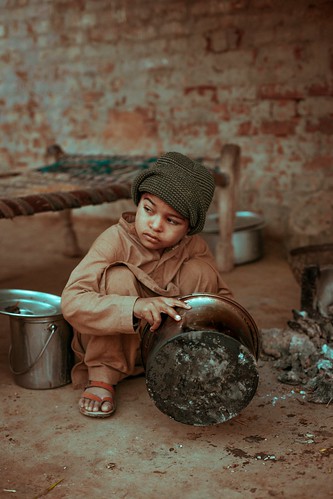Children’s Human Rights: An Overview
How do you feel as a person when you are mistreated and disrespected? Terrible, I believe.
Everyone, both children and adults alike, wants to be accepted, respected, and treated with dignity because they are humans and they have rights. According to the Geneva Declaration of 1924, humanity "owes to the children the best it has to offer," yet it is so unfortunate that in our world, people neglect and mistreat children (especially girls), instead of providing them with the best: protection, guidance, care, and love.

Independent of upbringing, country, circumstances, religion, disability, skin color, and language, every child has the right to development, well-being, and dignity under the principles of children's human rights. These rights are protected by a number of international treaties, most notably the United Nations Convention on the Rights of the Child (CRC), which serves as a global benchmark for the defense and advancement of children's rights.

Children’s Fundamental Rights
Every child is born with the inalienable right to life and survival for their physical well-being. This includes having access to the food, clean water, and medical treatment they need. Children have a right to quality education, which helps in fostering their intellectual, social, and emotional growth. Children are given the opportunity to create a better future when they are properly educated; this helps to empower them and make them refined and better citizens. Children have the right to protection from all types of violence, abuse, exploitation, and neglect. Children also have a right to freedom of expression. They also have a right to participate in decisions that affect them.

Historical Context of Children’s Human Rights
The history of children's human rights is characterized by millennia of child abuse and neglect, which has gradually led to an understanding of the importance of defending children's inalienable rights. In the past, children were frequently seen as the property of their guardians or parents, with little thought given to their specific needs and well-being (this is still prevalent in some countries and cultures). It took some time for the idea that children had their own rights to emerge.
Human Rights Challenges Faced by Children
While significant progress has been made in advancing children’s rights, challenges persist. The protection of children's human rights is hampered by numerous issues on both global and local levels. Millions of children worldwide still live in poverty, lack access to education and inadequate healthcare, and are exposed to violence and conflict. All of these challenges affect children mentally; children’s mental health is often not discussed. The right of children are also violated by child marriage, especially when it involves young girls. Frequently, child marriage leads to early pregnancies, health hazards, and the rejection of education and personal growth.
Many children experience physical, psychological, or sexual abuse in their homes, schools, or communities. This hinders not just their general growth, but also their physical and emotional well-being.
In some countries, children are recruited and used as soldiers in armed conflicts, depriving them of their right to a safe and secure childhood.
The fight against these challenges requires concerted efforts from governments, organizations, and individuals alike. Governments, civil society, international organizations, and individuals must work together to tackle these problems.
The protection and promotion of children's rights around the world depend on advocacy, policy modifications, and financial investments in social services, and the education of our government, culture, religious leaders, traditional leaders, parents, guardians, teachers, and children.

Progress in Advancing Children’s Human Rights
Through a combination of judicial changes, international collaboration, and tenacious advocacy efforts from NGOs and other international bodies, tremendous progress has been accomplished in promoting children's human rights, since the adoption of the United Nations Convention on the Rights of the Child (CRC) in November, 1989.
Almost all countries in the world have accepted the United Nations Convention on the Rights of the Child (CRC). The fact that the CRC is so widely accepted shows how seriously people around the world take protecting children's rights.
The United Nation’s Education for All project and the Sustainable Development Goals (SDGs) have prioritized universal access to education. Global child death rates have decreased dramatically as a result of improved healthcare, vaccination, programs, and measures to tackle preventable diseases. There has also been progress in reducing child marriage in several communities, with legal reforms and awareness programs aimed at protecting girls from early marriage.
While these advances are significant, there is still work to be done to fully realize children's rights worldwide. Continued commitment to campaigning, policy reform, and international collaboration is critical to ensuring that every child has the rights to which they are entitled.

In this series focusing on children’s human rights, I will address:

Sophia Newton, the Children's Human Rights Editor for Wandering Educators, is a passionate advocate for children’s rights. She has a strong background in Education and extensive years of teaching, during which she has touched the lives of countless children and teenagers. Her experience in teaching has given her firsthand insight into the challenges children face, both in and out of the classroom.
With a deep desire and commitment to help create a safe and better future for children, she is currently pursuing her Masters in Human Rights and Diplomacy at the University of Stirling, in partnership with the United Nations Institute for Training and Research. This will provide her the opportunity to expand her knowledge on issues relating to Human Rights.




















